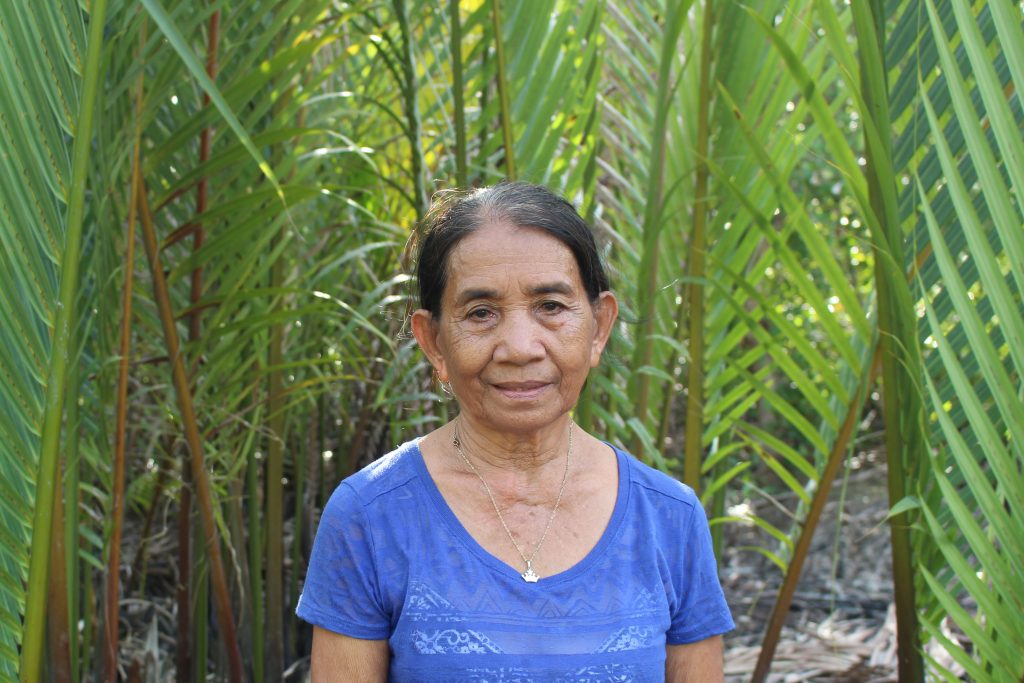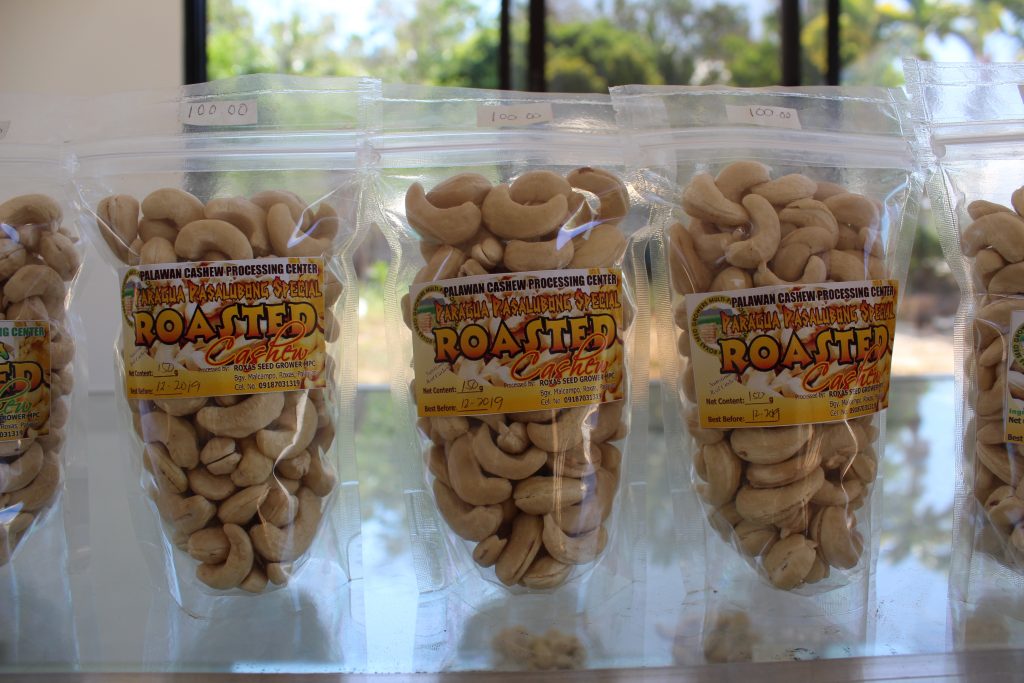 Roasted cashew is one of the products of the Roxas Seed Growers Multi-Purpose Cooperative which they sell in their processing center in Barangay Malcampo, Roxas, Palawan. This is a food item popular in particular to tourists visiting the province.
Roasted cashew is one of the products of the Roxas Seed Growers Multi-Purpose Cooperative which they sell in their processing center in Barangay Malcampo, Roxas, Palawan. This is a food item popular in particular to tourists visiting the province. Roxas’ new enterprises give alternative livelihood to farmers and fisherfolk
One of the main issues faced by cashew farmers in Roxas, Palawan – where the cashew fruit is a top commodity – is the minimal resources available to sustain their livelihoods.
There are many cashew growers and processors in Roxas and other parts of Palawan, particularly in the northern part of the province. However, since cashew trees bear fruit only once every year, it becomes difficult for small-time cashew growers and processors to earn a stable income for the whole year.
This is the main issue which the Philippine Rural Development Project (PRDP) wanted to address when it established the Palawan Cashew Processing Center, hand in hand with the Municipality of Roxas and the Roxas Seed Growers Multi-Purpose Cooperative (RSGMPC).
This enterprise generally aims to give its beneficiaries an opportunity to have a more steady livelihood, improve their socio-economic condition as well as provide farmers the capacity to process cashew during the peak season which they can process for the whole lean season.
“Small processors need not travel to other towns anymore just to sell their cashew because we already have our own processing center here in Roxas. Soon, our cooperative will have enough capital to buy from the majority of small processors in our municipality that will enable us to help them market their produce,” said Alfonso Madarcos, Operations Manager of the RSGMPC.
In the same municipality, the Project also funded the Rizal Mangrove Crab Production, one of the seven microenterprises established in the marine protected areas of Roxas, operated by the Samahan ng Maliliit na Mangingisda ng Barangay Rizal (SMMBR).
The group’s members, who are essentially the local fisherfolk, have tried to venture into mangrove crab production before but was unsuccessful. This time, they took advantage of the opportunity provided by the Project for another chance at leveling up their current situation.
Since income from fishing is not as steady and consistent compared to other livelihoods, there is a need for an alternative business that can contribute to the everyday needs of these fisherfolk.
“All our members have families and this is, of course, additional help in sending our children and grandchildren to school. In my case, it also helps in buying my husband’s medicines which cost around P10,000 monthly,” shared Monserat Bañez, a member of the SMMBR, who has grandchildren whom she sends to school and a husband who has a heart ailment and diabetes.
The Palawan Cashew Processing Center is worth P 8.04 million. The Rizal Mangrove Crab Production, on the other hand, costs P 1.25 million. ### (Leira Vic Colongon, DA-PRDP MIMAROPA RPCO InfoACE Unit)

Monserat Bañez, a group leader of the Samahan ng Maliliit na Mangingisda ng Barangay Rizal, manages one of the five nurseries of the Rizal Mangrove Crab Production enterprise. She makes sure that the crabs are fed every day and that there are no rips in the nets holding the crabs.

